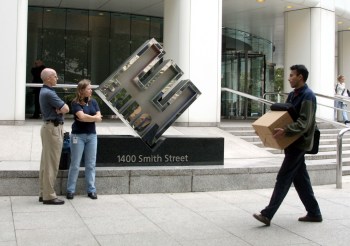Ron Paul’s investment strategy is gold
Share Now on:
Ron Paul’s investment strategy is gold
Bob Moon: One way to gauge how well a politician might be able to turn the economy around is to see how they manage their own money. The Wall Street Journal has spent two years looking into the investment activities of all 535 members of Congress. And today, the paper is focusing on presidential hopeful Ron Paul — the Texas congressman who has long crusaded for a return to the gold standard. As you might expect, his investment preferences reflect that — in a big way.
Jason Zweig is the Journal’s investing columnist. Thanks for joining us.
Jason Zweig: Good to be with you, Bob.
Moon: Tell us what you found out about Ron Paul’s portfolio?
Zweig: It’s one of the most unusual portfolios I’ve ever seen. It’s certainly the most unusual portfolio on Capitol Hill.
Moon: So where is he putting his money?
Zweig: Gold. Almost all of it. You know, most people who have a strong view about the financial future put a little more money in the thing they believe in, and a little less in the things they don’t believe in. And he’s pretty much made an all-in bet on the one thing that he does believe in, which is that gold is sound money, and that government bonds are not. And apparently, the stock market also is not.
Moon: Now he’s really taking aim at the foundations of both the U.S. and global economy. Is there anything wrong with him investing in gold? Isn’t he putting his proverbial money where his mouth is?
Zweig: That’s exactly what he’s doing. Whether it’s prudent is maybe a different question. I mean obviously, if Ron Paul’s view of the world turns out to be true, this kind of portfolio will also turn out to be a profitable one. But if you’ve got 64 percent of your money riding on a bet that your worldview is correct and you do turn out to be wrong, it’s not going to be a pretty picture.
Moon: Well let’s look at the performance — has he lost any money in the last two, three years?
Zweig: No, I don’t think so. It’s hard to get a precise measurement on rate of return with any congressional portfolio because the disclosure requirements don’t require detailed reporting on the dollar amount of the positions. So we can only make the roughest estimate, but I have no doubt that this portfolio has outperformed the stock market as a whole over the past few years.
Moon: And as you would probably underscore, past performance is no guarantee of future return.
Zweig: Yeah, that’s correct. And one of the concerns here is, you know, diversification is a form of insurance. And when you diversify, you’re not just insuring against the risk that other people are wrong, but you also want to insure against the risk that you’re wrong. We might have inflation coupled with a collapse in the U.S. dollar, as Ron Paul foresees, but there are a lot of other bad things that could happen to the American economy, too, and this kind of portfolio won’t protect against those. Plus, good things could happen, and in that case, this kind of portfolio is unlikely to make much money at all.
Moon: Jason Zweig is an investing columnist for the Wall Street Journal. Thanks very much.
Zweig: Thanks Bob, my pleasure.
There’s a lot happening in the world. Through it all, Marketplace is here for you.
You rely on Marketplace to break down the world’s events and tell you how it affects you in a fact-based, approachable way. We rely on your financial support to keep making that possible.
Your donation today powers the independent journalism that you rely on. For just $5/month, you can help sustain Marketplace so we can keep reporting on the things that matter to you.

















